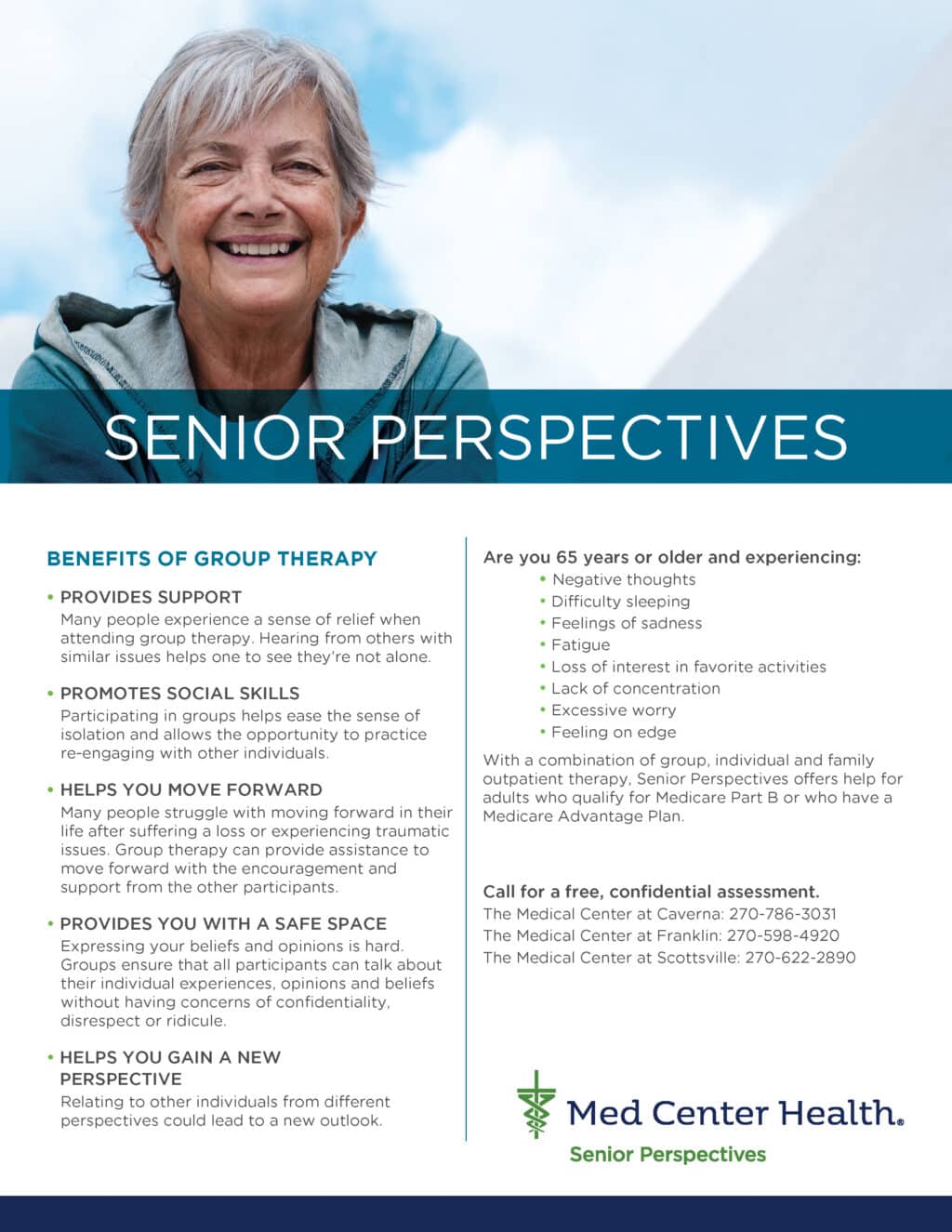Senior Perspectives
As we grow older, we all experience unique changes. These changes may include the loss of a spouse, family members, or friends. We may experience physical decline, loss of mobility, or independence. These changes can often become overwhelming, leading to more serious emotional health issues. Too many times emotional health of seniors is overlooked and its impact on physical healing and independence. Med Center Health recognizes the unique needs of senior adults and the importance of their overall well being.
Senior Perspectives is an outpatient counseling program for older adults who qualify for Medicare Part B or have a Medicare Advantage Plan. Through a combination of group, individual, and family therapy, nursing education and medication management, participants gain insight into their struggles and learn effective ways of coping.
The outpatient option allows seniors to receive an intensive level of treatment without the high cost or inconvenience of hospitalization. Transportation (handicap accessible) is coordinated by Senior Perspective’s staff.
For those who may benefit from our services, a complimentary confidential assessment can be scheduled. This free consultation will be conducted by a qualified mental health professional at your convenience and in your living environment.
Learn more about Senior Perspectives
Help is available for seniors facing serious emotional issues. Call Senior Perspectives for more information.
Scottsville – 270-622-2890
Franklin – 270-598-4920
Horse Cave/Caverna – 270-786-3031
Listen to learn more about Senior Perspectives
Med Center Health is proud to present Clinical Connections, a Med Center Health podcast. This episode features Kenyatta Williams and Katie Flemming discussing the Senior Perspectives Program and how they help the elderly population deal with the life changes that come with aging.
Listen to the podcast here:
More than the “holiday blues”
The holidays can be stressful. Shopping, social events, debt, and other pressures can lead to anxiety. Missing loved ones and thinking about past events can also contribute. And, for some of us, the decrease in light and colder temperatures can lead to Seasonal Affective Disorder (SAD). Learn more about SAD in the video below.


